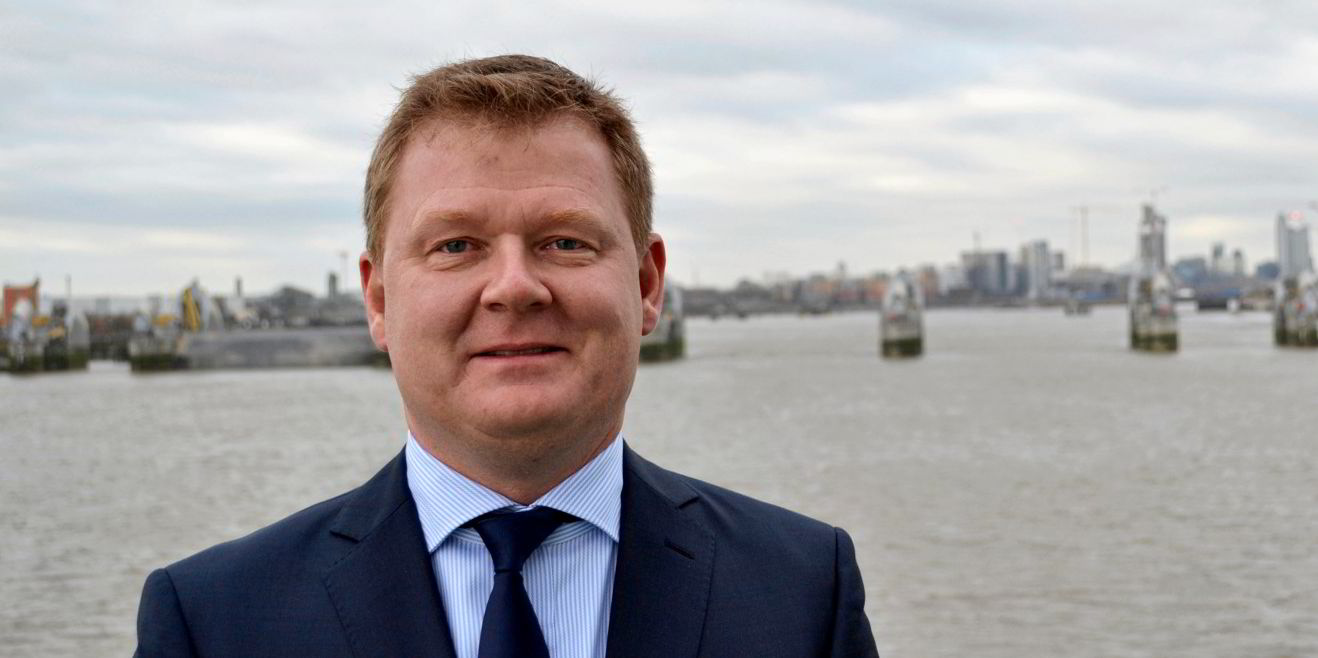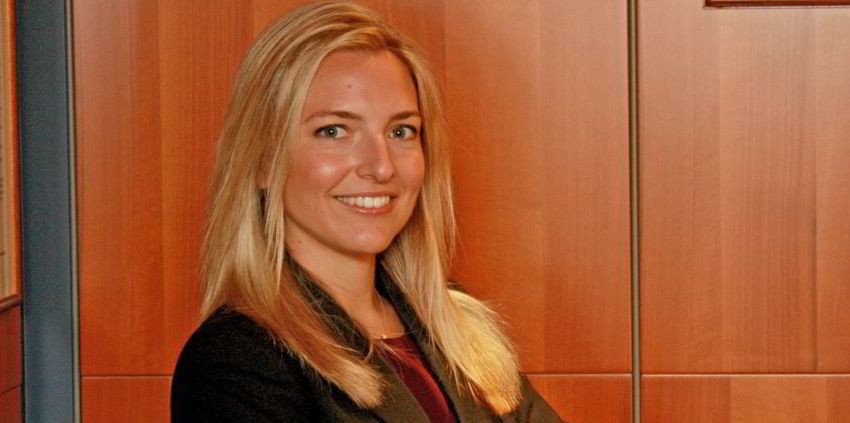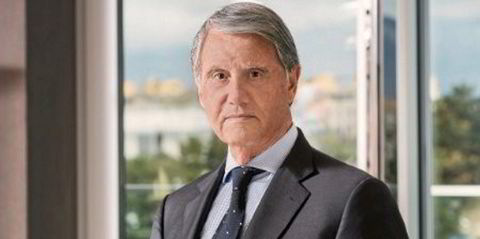There can be few people who know Ultrabulk better than its chief executive, Hans-Christian Olesen.
He has worked for the company for 35 years and started in the top job back in March, taking over from Per von Appen, whose family is the controlling shareholder of the bulker operator.
But there is plenty for Olesen to tackle in the top job, especially in an environment where not only the needs and expectations of Ultrabulk’s customers are changing but the dynamics of markets too.
Olesen told TradeWinds that he wants Ultrabulk to sharpen its profile as a freight trader, first and foremost.
“We have been very focused on our industrial relationships, long-term deals and so on — we will continue to be that [focused] because it’s not one or the other, we just need to have another focus on our freight trading,” he said.
Olesen said Ultrabulk runs between 170 and 200 ships and is trying to leverage its size — “because the type of activity creates very good market information”.
“An important part of sharpening that is to make sure we have the authority out where the deals are being made to empower the guys to make the right deals when they need to make them,” Olesen said. “We have already made quite a few changes when it comes to the structure of decision making.
“I think to be a good trader, you need to be able to accept that you’re not always right, so instead of pursuing always to be right, accept that once in a while you get it wrong, but you’re willing to take counter-measures and correct the book and then move on from there.”
Technology will play a key part in how Ultrabulk develops its trading activities.
“Until now, we’ve accumulated a lot of data about our voyages, like when does it rain in New Orleans and all that,” Olesen said. “But as soon as we’d issued the last statement for that voyage, the data became dead data sitting in our system and we went on to the next voyage.”
Ultrabulk is now on a mission to convert its large data sets — shipment patterns, trade flows, weather trends — into useful insights and use them to optimise and automate its processes.
“We have a team of 13 people now on the business intelligence section, working to develop and to become better on the digital side — not just one or two areas, it’s across the company in reporting, market forecasting and in everything we do,” Olesen said.
To date, most of the business intelligence team has been hired from outside shipping and the plan is to carry on recruiting. (“We kind of joke sometimes that the fastest-growing department in Ultrabulk is the business intelligence section, so we believe a lot in that.”)
Data will also be key in shaping how Ultrabulk tackles its transition to decarbonising its operations and running its fleet more efficiently.
“We have the willingness to invest in and transition our business to take advantage of the huge opportunity that the environmental transition offers — we see it that way,” Olesen said.
The operator is not too worried about the incoming Energy Efficiency Existing Ship Index and Carbon Intensity Indicator environmental regulations, which enter into force in January. It has done its research and found that the new rules will have no dramatic effects on its modern operated fleet.
“Our big focus is really on the low-hanging fruit, which is retrofitting and making vessels more efficient with modification,” Olesen said.
Ultrabulk wants to use technology that exists today to hit 2030 emissions targets, and for that the operator is joining forces with tonnage providers to adapt vessels.
Meanwhile, Ultrabulk is making an effort to make its workforce more diverse not only in terms of gender but across religions, cultures and geographical locations. Olesen said it has come a long way in this respect — and is seeing its customers doing the same thing, which could have commercial benefits.
“Hopefully, we find by having different people, we find the right person that clicks with [a] person on the other side with our customers or vendors, in general,” he said.
“I think if we get some of these things right, and we remain a place where people really are energised by going to work, I think — with the shareholders that we have and their commitment to the industry — we are actually sitting in a very good position to expand our business going forward,” Olesen said.
Hans-Christian Olesen is broadly optimistic about the outlook for dry freight markets, but remains “confused” about the situation in China, where widespread lockdowns have been used to control the spread of Covid-19.
“During my career, most of the time China has been driving [demand]; it’s the workshop of the world,” he said.
“What we’re seeing from China now, with unemployment of people between 16 and 24 years of age at 20%, that’s worrying. We've seen a time, in the time that I can remember, a China that’s built on economic progress.
“I don’t know exactly what’s happened with this Covid strategy.”
He said the task now is to try to understand China beyond the zero-Covid strategy and how that will affect commodity demand and supply to the country.
Meanwhile, Olesen said there has been demand for dry bulk commodities in Europe and North America at levels that have not been seen for a very long time, which could bring new business.
“Will some of our customers move production to other places than China? Probably, so I’m cautiously optimistic, actually, [following] Covid that we have more than one leg to stand on,” Olesen said.
Rising geopolitical tensions between China and other countries are worrying, as is
the ongoing war in Ukraine. Inflation is adding to the
more difficult macroeconomic picture worldwide. But it is difficult to plan ahead in a world where change is the only constant.
“The interesting thing is when you sit and you have to take decisions of chartering a ship that delivers to you in 2025 and 2026, that discussion often circles back to a discussion of ‘What’s the inflation today?’, ‘What's the war in Ukraine looking like?’ and all that we’re seeing right in front of us,” he said.
“But my point there is that
I think there’s going to be trouble when we get to 2025 and 2026 — when these ships that we are contracting at the moment, they deliver — it’s just going to be other problems than what we have today. It’s not going to be a problem-free world.
“Fundamentally, I see a sustained dry bulk market
for the rest of the 20s. That’s
my view. And I know we are positioning ourselves for
that.”





